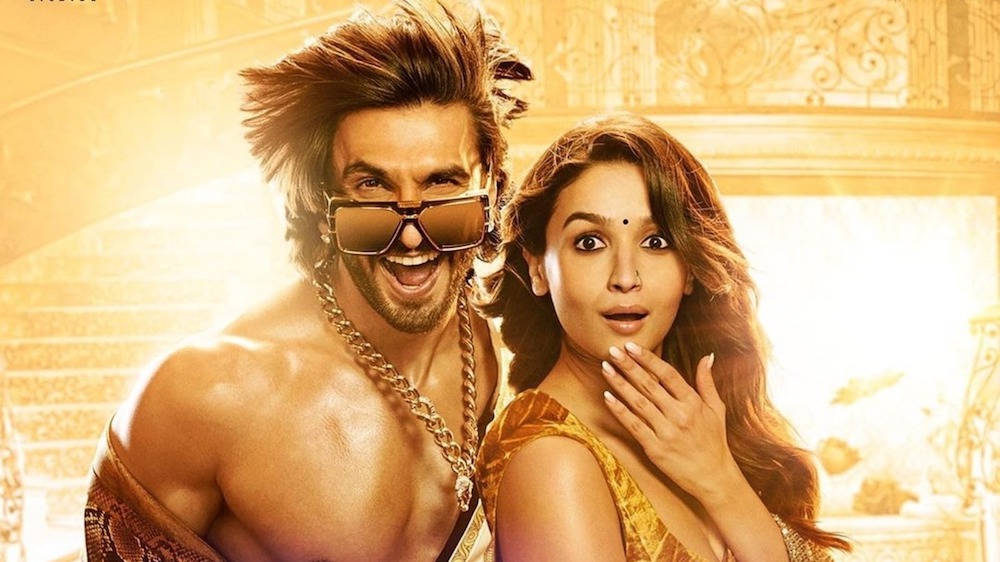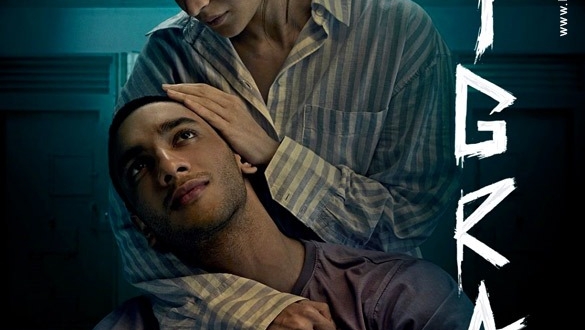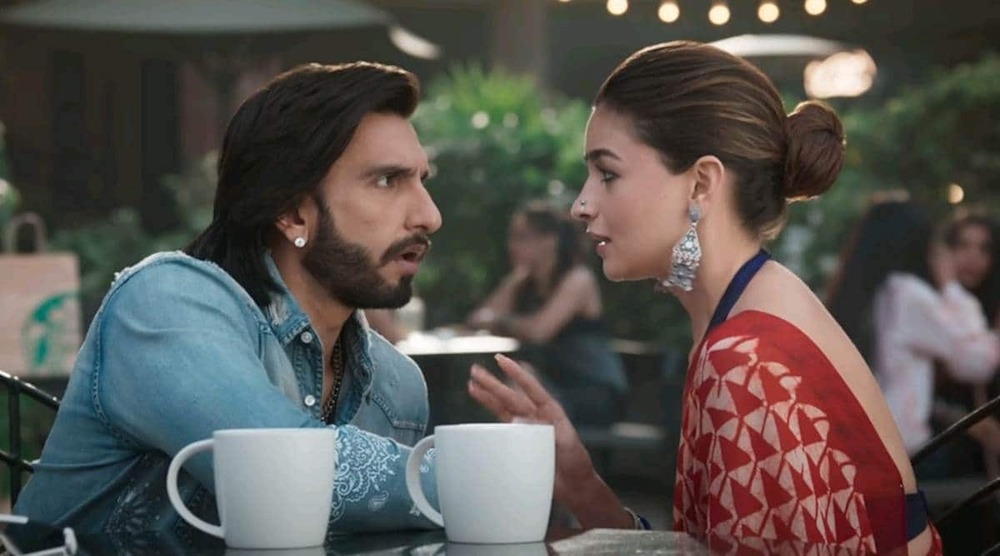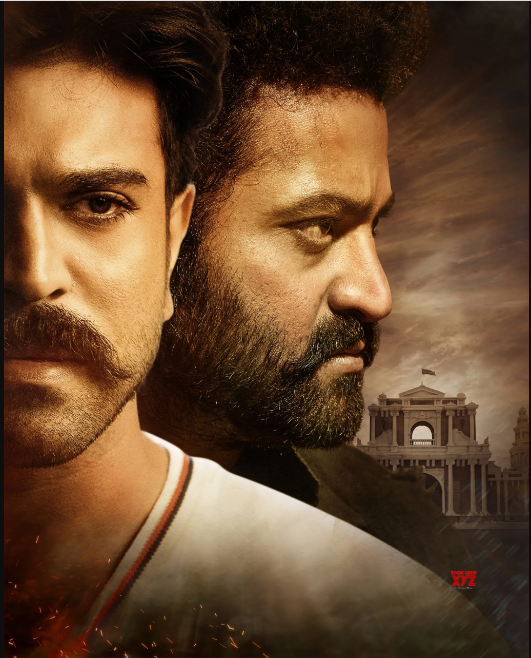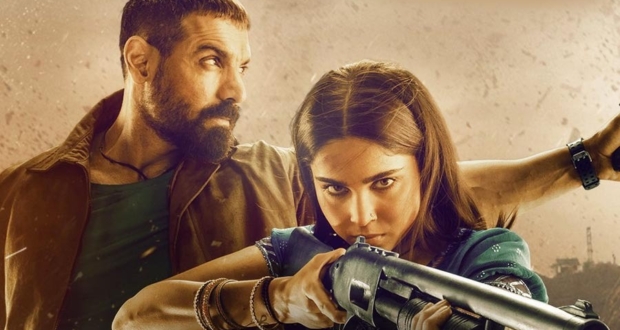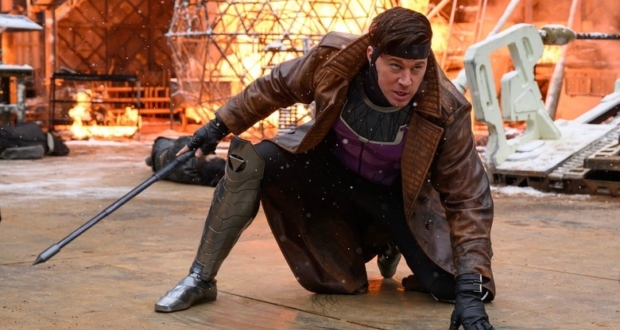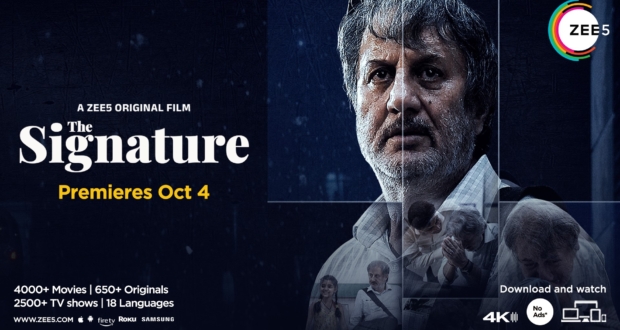Rocky Aur Rani Kii Prem Kahaani is a milestone in Bollywood storytelling. Not because it does anything new or reinvents the wheel. But because it showcases the usual Bollywood tropes and ideas in a brand new way, that is refreshing and honestly, a lot less problematic than we’re used to. One of those ways is how Rocky Aur Rani subverts the toxic masculinity that we are, frankly, too used to seeing in the Hindi movie industry.
Please note that the following will contain massive spoilers for Rocky Aur Rani Kii Prem Kahaani.
The Proactive Heroine Versus The Passive Hero
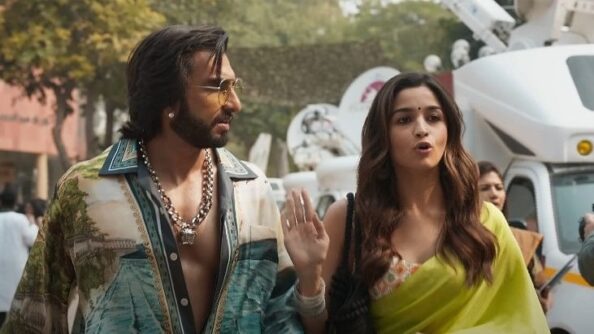
Image via Dharma Productions.
The story of Rocky Aur Rani Ki Prem Kahaani isn’t new but is uniquely for a new generation. Since the 70s, or quite possibly earlier, Bollywood has featured stories where the family of a couple denies their love or the couple ends up resolving the conflicts of a troubled family. From Dilwale Dulhania Le Jayenge and Kal Ho Naa Ho to Kabhi Khushi Kabhi Ghum, it’s been happening for decades. But in the majority of those cases, it’s been the hero who enters the heroine’s life and fixes everything. While the heroine is at best, an active participant. But Rocky Aur Rani Kii Prem Kahaani kind of flips the script in a cool new way.
In Rocky Aur Rani, the toxic masculinity is reversed with a quick tweak to the story. After having issues with their wildly different families, Rocky and Rani decide to do a house swap to better spend time with the other’s family members in hopes of winning them over. And while Rocky (Ranveer Singh) does this through his ravishing charm and simplistic outlook, Rani (Alia Bhatt) actually goes in with a plan.
Rani Plans While Rocky Charms
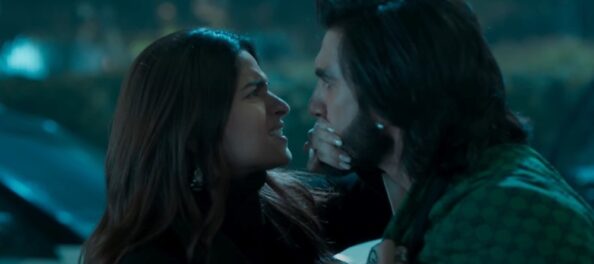
Image via Dharma Productions.
Once in their house, Rani has a conversation with the matriarch, Dhanlakshmi (Jaya Bachchan) about them treating her like one of the family. She has a plan and begins to win them over one at a time. Rani helps take care of the catatonic grandfather Kanwal (Dharmendra). She walks in on Rocky’s mother (Kshitee Jog) singing to herself and encourages her to pursue that talent. She discovers Rocky’s sister’s (Anjali Anand) penchant for trading and actively helps her find a job in that field.
While on the other hand, spending time with Rani’s family actually helps Rocky grow as a person. In many ways, they fix him. It’s a great way to break out of the usual, hero-fixes-all motif that many Bollywood movies have been doing for decades. Instead gives the heroine a lot more to do than just go along with the hero’s plan. And it subverts the toxic masculinity in Rocky Aur Rani by actually developing the hero’s journey as being about his growth as a person, not just having everyone love him and getting the girl in the end.
A Nuanced Subversion in Rocky Aur Rani Toxic Masculinity
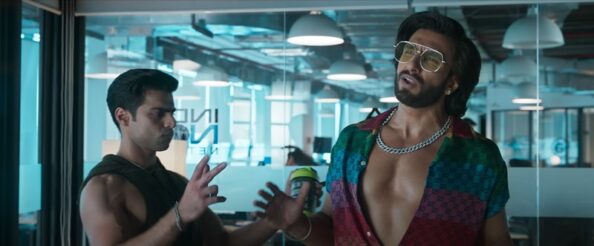
Image via Dharma Productions.
But don’t get me wrong. Rocky Aur Rani doesn’t just take the toxic masculinity from other stories and just gender-switch them. There’s a lot more to it than that. Throughout the movie, Rocky is the simple rogue with a heart of gold, while Rani is the smart and intellectual one. Upon their first meeting, Rani completely objectifies and checks out Rocky’s intentionally bare chest. But different from what may be offensive to a woman, Rocky, as a man, is actually glad and feels complimented. He even gives her permission to objectify him even showing his self-awareness in that moment. It’s a change that continues throughout the movie.
The first conflict of the story is how they are both on different pages about their relationship. While Rocky got too serious, Rani saw the relationship as a casual fling. After Rocky gets upset and storms out on Rani, it’s on her to make a grand gesture to win him back. But even that isn’t just a cliched romantic scene, Rani actually gets very aggressive with her apology monologue.
But my point is that it’s not just having the woman act masculine and the man more feminine, as other movies have attempted. It’s depictions of lead characters that aren’t dictated by their genders, but are compelling and interesting despite societal perceptions of their gender roles. Rocky Aur Rani does this wonderfully by showing that their dynamic in a relationship isn’t defined by the typical gender roles that we never actually even question.
Other Ways Rocky Aur Rani Subverts Toxic Masculinity Is More On The Nose
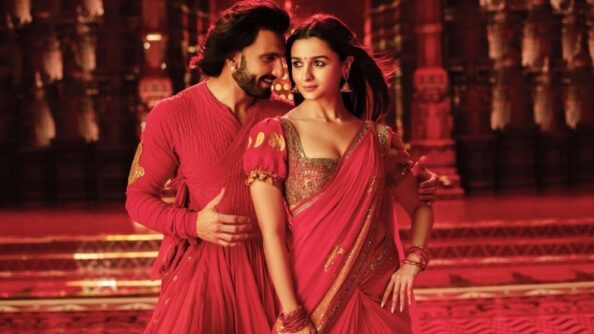
Image via Dharma Productions.
And while all of this happens very subtly, there are definitely other ways the movie does this that are actually a lot more obvious. Namely, through Rocky’s love of dance. The movie sets up right away from Rocky’s introduction that his misogynistic father doesn’t like him dancing. While it’s not said out loud, it feels like this is an extension of his father’s sexist and regressive attitudes. Proven when the father and Dhanlakshmi snicker at Rani’s father’s (Tota Roy Chowdhury) incredible Kathak performance. So naturally, when Rocky meets Rani’s father, who not only condones dancing but is an actual classically trained dancer, he is overjoyed.
After a beautiful and touching scene of Rani’s family finally accepting Rocky, he learns Kathak from her father, which culminates in one of the movie’s best musical numbers. Singh performs the traditional dance as Rocky with grace and skill, never mimicking a feminine style. It never feels like an imitation, but rather a genuine performance in and of itself. It’s a significant moment of self-discovery and acceptance on Rocky’s part.
Played For Comedic Effect, Without Being Disrespectful
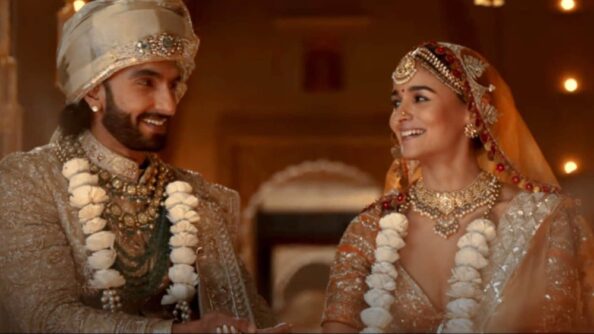
Image via Dharma Productions.
The coolest thing about how Rocky Aur Rani takes on the toxic masculinity in most Bollywood movies is how while there are dramatic moments, there are also light-hearted ways they do this. Johar does have some fun with the role reversals, but in a way that doesn’t feel like low-hanging fruit, but harmless humour. In the epilogue of the movie, during the Kudmayi song, the bride and groom are getting ready, and Rani looks gorgeous in a grand courtyard. While Rocky is enjoying his preparations with his newly reunited family, and getting very emotional and bawling his eyes out. This is a subversion of the usual wedding scenario where it’s the bride who cries during the Vidayi (farewell).
Johar doesn’t play the scene as Rocky imitating or mocking how women react in that situation, but it plays out true to his character established throughout the film. Rocky is the more sentimental and emotional one between him and Rani, so it makes complete sense for him to get emotional during his wedding.
Rocky Aur Rani Kii Prem Kahaani is an amazing rom-com, that goes beyond the usual tropes we see in Bollywood movies. It’s making tweaks to things we’ve all accepted as a result of the time, but also never questioned the values of. Johar updates and modernizes those concepts without getting too heavy-handed or preachy. It’s subtle and in service to the story, and not just making a commentary or criticizing what came before.
Rocky Aur Rani is now streaming on Amazon Prime Video.
What did you think about how Rocky Aur Rani showcases these instances of toxic masculinity? Let me know in the comments below or reach out to me on X (Twitter) at @theshahshahid for more Bollywood conversations.
